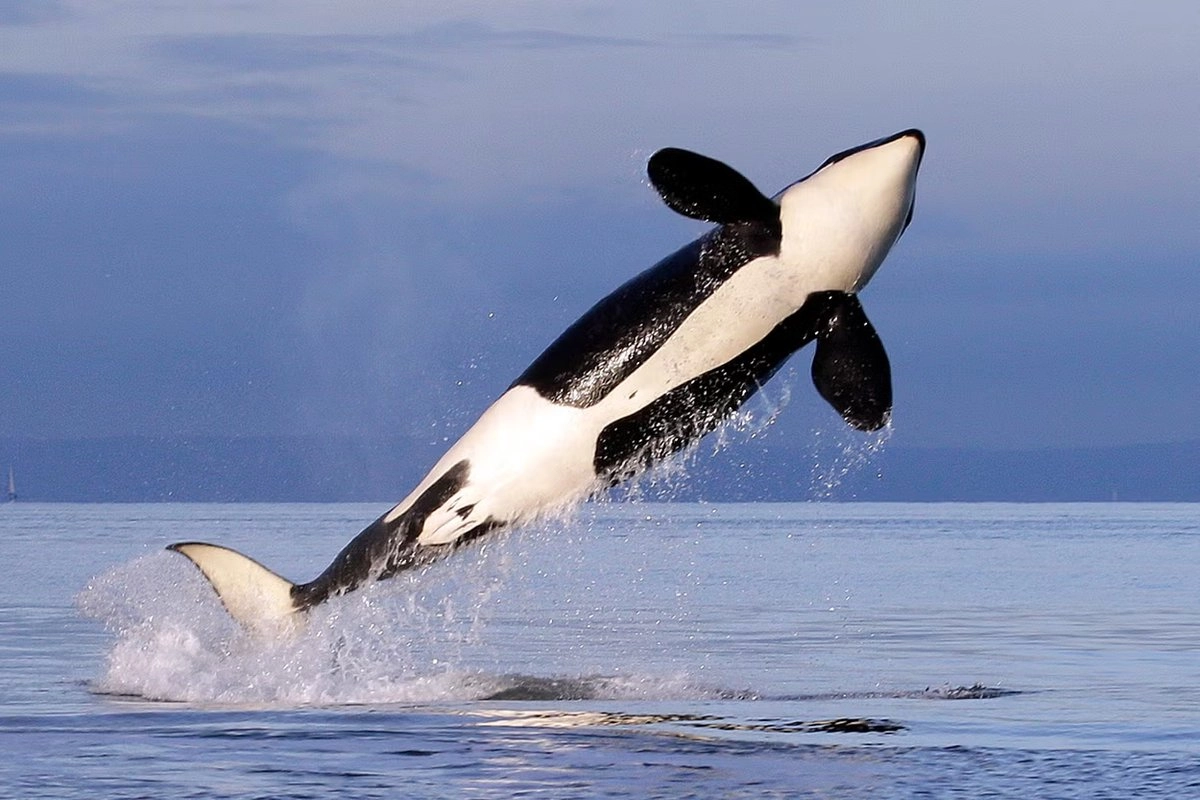For the first time, scientists have documented orcas hunting great white shark pups in a nursery area—using a specialized technique to flip the young sharks upside down, paralyze them, and extract their livers, suggesting a possible seasonal shift in diet.
Until now, orcas had only been observed hunting adult great whites off the coast of South Africa, where a single kill could feed an entire pod. However, a research team recorded orcas in Mexico’s Gulf of California employing a coordinated strategy to target juvenile sharks—flipping them over, inducing paralysis, and removing their nutrient-rich livers to share among the group.
According to the study, published in Frontiers in Marine Science, these orcas—nicknamed the Moctezuma pod—may be exploiting a local nursery of young, inexperienced sharks that are easier to catch. Researchers also suspect that warming ocean waters in the Gulf may be shifting the traditional nursery grounds of great whites, bringing the pups closer to the orcas’ hunting zones.
“This behavior reflects the orcas’ advanced intelligence, strategic thinking, and social learning,” said marine biologist Erick Higuera Rivas, co-author of the study. “These techniques are passed down through generations.”
The scientists documented two hunting events in which orcas killed three young sharks. The first, recorded in August 2020, involved five orcas working together to drive a pup to the surface before flipping it—a maneuver that triggers tonic immobility, a temporary paralysis caused by disorientation. Once the shark was immobilized, the orcas carried it underwater and later resurfaced holding its liver.
A second, nearly identical attack was observed shortly after, and another was documented in August 2022.
Flipping a shark upside down induces tonic immobility, rendering it completely defenseless and allowing orcas to extract the liver—an energy-dense organ—while avoiding the risk of being bitten.
Adult great whites are known to flee from hunting orcas, abandoning feeding grounds for months. However, these young sharks may not yet recognize orcas as predators.
Researchers believe climate phenomena like El Niño could be shifting shark nurseries toward the Gulf of California, increasing the exposure of these vulnerable pups to orca predation. Future studies aim to monitor how ocean warming continues to alter the distribution and survival of great white shark populations.



